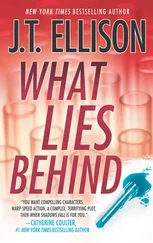‘Yes. If it becomes known, investors might take their money out. I don’t suppose Cadences would actually crash, but it could be seriously harmed. That would mean people’s lives would be affected – not just employees but people with small life savings.’
‘Always that touch of noblesse oblige ,’ said Gil, lightly.
‘Don’t be so cynical.’
‘But Cadences is strong enough to survive a few lost investors, surely? It’s been going long enough.’
‘It’s not an easy time for any banking organization,’ said Crispian.
‘Ah. The Germans trying to corner everything they can,’ said Gil. ‘Aided by Austro-Hungary half the time.’ He grinned. ‘I’ve surprised you again, haven’t I? You’re thinking I’m not altogether the irresponsible shallow wastrel you thought me, and you’re wondering if you should revise your opinion.’ Before Crispian could think how to respond to this, he said, ‘Is Julius likely to die while we’re at sea?’
‘Your father thought he probably only had a few weeks left. He said the deterioration had become rapid over the last six months. And I suppose once it reaches the brain—’
‘So,’ said Gil, his eyes bright and a faint flush across his cheekbones, ‘for a few hours of pleasure with a handful of women, he’s ended up with a filthy bone-nibbling, flesh-destroying disease that sends its victims scuttling into the shadows so no one will see its repulsive pawmarks. God, it’s enough to make a man give up fucking for life. And don’t make that prudish face, Crispian, because I know damn well there’s nothing prudish about you.’ In the glow from the cabin’s lamp his eyes had a curious luminous quality like a cat’s: Crispian could see the tiny golden flecks in the deeper brown. Neither of them spoke, then Gil put out a hand to Crispian.
Crispian’s heart was beating like a steam-hammer, but after a moment, he moved away, ignoring the hand, not even looking at Gil. He managed to say, ‘Gil, you do know I’m not—’
‘Aren’t you?’ said Gil harshly. They looked at one another, then Gil said very quietly, ‘Do you know, I believe I’m drunker than I thought. I’ll go to my cabin and try to sleep it off.’ He turned away and went quickly out.
Crispian listened to his footsteps dying away. His mind was in turmoil and he had to make a massive effort not to go after Gil. But somehow he forced away the desire to do so. This journey was for his father, who was going to die. It was for keeping Julius as safe and comfortable as they could manage, and it was also to protect Cadences and all its staff and investors. Nothing else should matter. Hell, thought Crispian, nothing else does matter.
But his emotions were still scalding through his entire body, and they were so strong they frightened him. I can’t feel like this about another man, he thought, I simply can’t. He forced his mind to recall girls he had known at Oxford – nice girls who were the sisters or cousins of friends and could be taken to lunch and with whom one might venture a daring kiss on the cheek. And there had been other girls who took it as a matter of course that things would go well beyond a chaste kiss or a respectful guiding arm. They worked in bars or clubs, those girls, and thought it ever so exciting to be smuggled into an undergraduate’s room. They giggled a good deal, and although they did not precisely expect to be paid hard cash for the liberties they allowed, it was usually understood that some kind of generous gift would be forthcoming. Crispian had known several such girls and he had enjoyed his experiences with them very much. That was how it should be. It should not be this dangerous excitement, this pulsating desire because another man’s hand had lain against your own for a few moments, or because glowing dark brown eyes, filled with secret promise, had stared into yours.
London, 1912
Serena thought it was curious how one secret could bring about another. She and the Flaggs and Dr Martlet had kept the knowledge of Julius’s insanity from the world for years – far longer than Crispian or anyone else had suspected. At first the attacks had been of quite short duration; Dr Martlet had talked about overwork and brain fever, and been reassuring. He had kept Julius docile with various draughts and potions at those times. Serena had agreed to it all, relieved to have the decisions made for her, but she had found it deeply distressing to see Julius, usually so vigorous and energetic, sitting meekly in a chair, staring vacantly at nothing.
The room at the top of the house had been Dr Martlet’s suggestion; the spells of confusion were becoming more pronounced, he had said in the summer of 1910. It was possible they might spiral into violence. Serena had reluctantly agreed.
During the periods when Julius had to be locked inside the appalling room, Dr Martlet called at the house every day – sometimes twice a day. Mrs Flagg set meals on a tray, which Flagg carried upstairs. Serena knew quite well that without Dr Martlet and the Flaggs, Julius’s condition would certainly have been known earlier. Crispian would have known, and Colm. The bank… She had never known a great deal about the running of Cadences – it had never been expected that she would – but it did not take much logic to see that investors in Cadences would be uneasy if they were aware its head had sometimes to be locked away for fear he injure himself. Even so, Julius had never displayed violence towards anyone until the night Crispian came home.
‘I’m that sorry, madam,’ Flagg said, challenged as to how Julius had got out of the room. ‘Like I told Mr Crispian, the only thing I can think is that he finagled a key out of the workman when the lock was put in. He might do that, you know. He might have gone along to have a word with the man, friendly like, and the man, not knowing any different, would give him an extra key.’
‘Yes, that’s possible. It’s not your fault, Flagg.’
After that attack, Serena stayed in bed for several days, pleading a bilious turn. In fact, she genuinely felt sick and on the third morning she had to rush to the water closet just off her bedroom, where she was violently ill. When the same thing happened the following morning and the one after that, a faint alarm stirred within her mind, but she managed to dismiss it and hid the bouts of sickness from Dora and Mrs Flagg.
But by then she was aware of another symptom – or, not a symptom exactly, more of an omission. She counted up the days, a small frown creasing her brow. One week after Julius’s attack she should have felt the familiar ache in her womb; it should have been necessary to make use of the discreet padding arrangements kept in the bottom drawer of her dressing table. But she had not needed them and she still did not. Also, a swollen tenderness was starting to be apparent in her breasts, a feeling she remembered from the months before Crispian’s birth.
It could not be that, it could not . She counted up the weeks again, this time using her diary to be sure, but the result was the same. Then she reminded herself she was forty-two and this was surely nothing more than the start of that last watershed of a female’s life, the process that signalled the ending of child-bearing years. But the memory of Julius ramming into her body, brutally and convulsively that night, was still with her.
‘I’m afraid there can be no doubt,’ said Dr Martlet, four weeks later, having performed the hateful intrusive examination. ‘You’re going to have a child, Lady Cadence.’ He sounded stern but he also sounded deeply sad, as if he thought he should have been able to prevent this.
‘Are you quite sure about it?’ asked Serena.
Читать дальше












